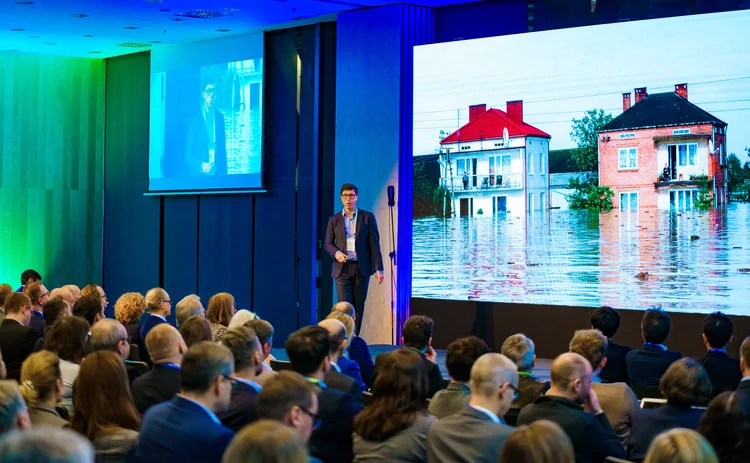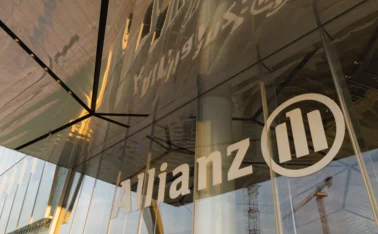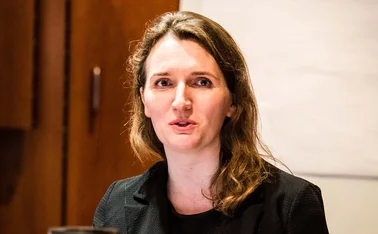
'Completely new ways of thinking' needed to address $1.2tn protection gap

Insurers need to make further efforts to focus on the customer and build trust if they are going to address the $1.2tn (£920bn) global protection gap, a conference heard.
Opening Sollers' Innovation in Insurance 2020 conference in Poland, Michał Trochimczuk, pictured, co-founder and managing partner at Sollers Consulting, highlighted that natural catastrophes in 2019 resulted in losses of $150bn (£114bn), out of which only one-third was insured.
He added that this protection gap has more than doubled between 2000 and 2018 and is now at a record high.
According to Swiss Re's 2018 report Closing the Protection Gap, over the 10 previous years around 30% of catastrophe losses were covered by insurance, leaving roughly 70% of catastrophe losses borne by individuals, firms and governments.
In order to address this protection gap, insurers need to rethink their way of doing business, said Trochimczuk.
He said: "Products and sales approaches should be based on completely new ways of thinking about offerings and customers."
He emphasised that in order to build trust, innovative technology must be applied.
Insurers need to simplify products, establish value-added services, streamline processes and make communication more transparent.
He concluded that the role of the insurer is changing from "claims payer to that of a life companion".
Addressing the protection gap
International insurance think tank, the Geneva Association, made two major recommendations for policymakers and regulators in a November report on The Role of Trust in Narrowing Protection Gaps.
The first was that effective customer protection was key; to ensure this, regulators needed to ensure insurers were solvent and able to pay claims.
The second was to promote healthy competition.
The report stated: "Effective customer protection is indispensable to lubricating insurance markets with trust. First, regulators should promote access to insurance through regulations that interfere with the market mechanism for rate determination or through more subtle means, such as restrictions on premium rating factors. Second, regulators should make sure that insurers have the ability to pay claims and remain solvent. This may involve timely prudential regulatory intervention."
It added: "There is a positive correlation between an insurance market’s competitiveness and levels of customer trust. In a competitive market, the cost to customers for switching from an underperforming insurance carrier to a more favourable competitor is relatively low. However, the cost of customer attrition for insurers is high. Therefore, in a competitive market, the onus is on insurers to perform well and satisfy customers."
In its June report into Underinsurance in Mature Economies, the research group cautioned: "Protection gaps are well documented. Contrary to general belief, they are not limited to developing and emerging countries but also common in advanced economies.
"Across various protection needs people use less insurance than economically beneficial—even after taking into account that insureds should retain some risks according to their personal risk appetite, risk bearing capability and cost-efficiency considerations. Societies are faced with significant protection gaps, and practitioners, academics and policymakers alike struggle to come up with plausible explanations which could inform corporate and public decision-making."
In its June 2019 report into underinsurance in mature economies, the Geneva Association urged insurers to:
-
Revamp traditional approach to product and industry communication
-
Enhance customer experience in the ‘moment of truth’
-
Respond to customers’ need for financial education
-
Build an omnichannel proposition for distribution
Source: The Geneva Association, 'Underinsurance in Mature Economies' research, June 2019
Only users who have a paid subscription or are part of a corporate subscription are able to print or copy content.
To access these options, along with all other subscription benefits, please contact info@postonline.co.uk or view our subscription options here: https://subscriptions.postonline.co.uk/subscribe
You are currently unable to print this content. Please contact info@postonline.co.uk to find out more.
You are currently unable to copy this content. Please contact info@postonline.co.uk to find out more.
Copyright Infopro Digital Limited. All rights reserved.
As outlined in our terms and conditions, https://www.infopro-digital.com/terms-and-conditions/subscriptions/ (point 2.4), printing is limited to a single copy.
If you would like to purchase additional rights please email info@postonline.co.uk
Copyright Infopro Digital Limited. All rights reserved.
You may share this content using our article tools. As outlined in our terms and conditions, https://www.infopro-digital.com/terms-and-conditions/subscriptions/ (clause 2.4), an Authorised User may only make one copy of the materials for their own personal use. You must also comply with the restrictions in clause 2.5.
If you would like to purchase additional rights please email info@postonline.co.uk







